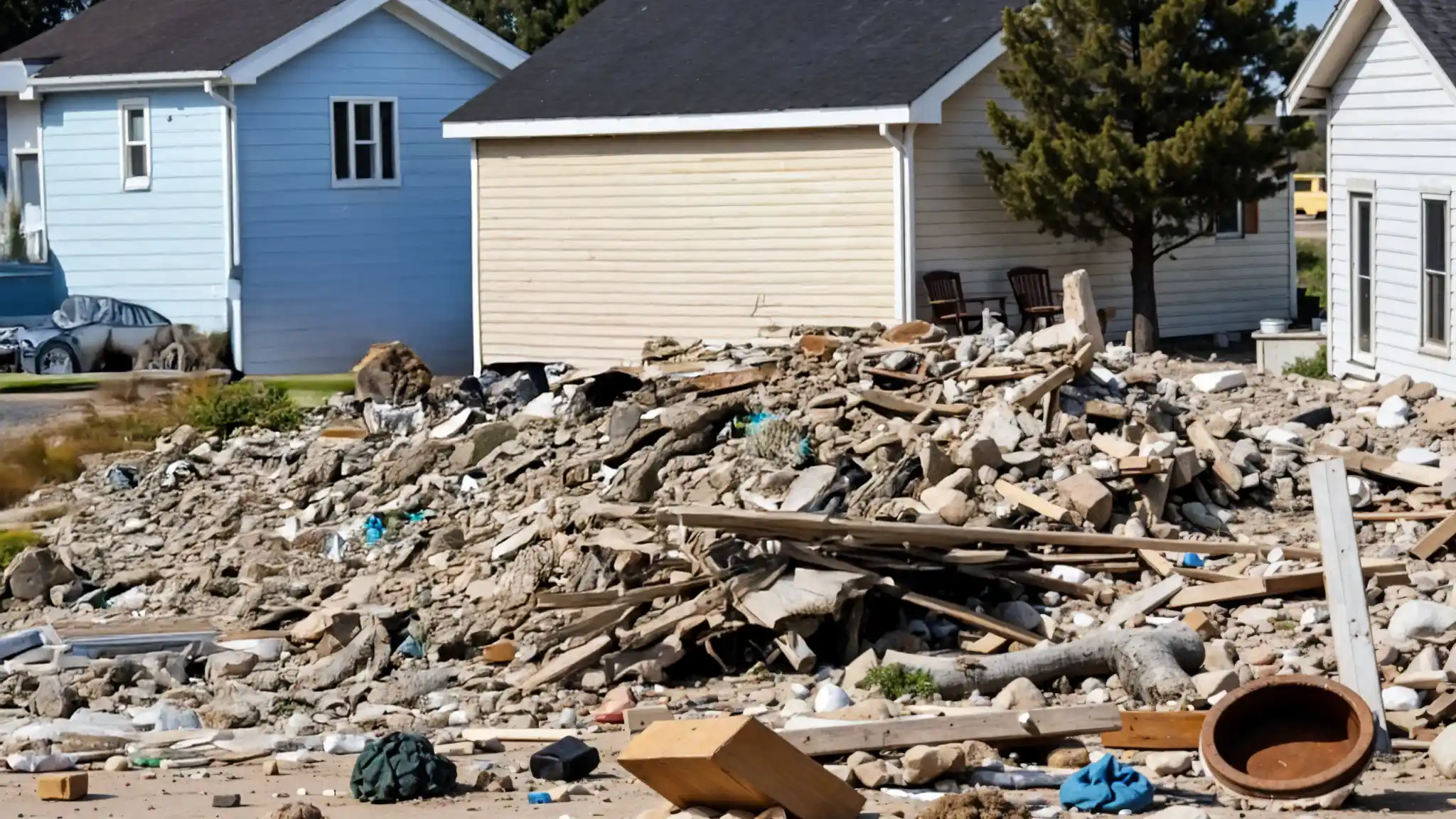The Emotional Side of Disaster Recovery: Supporting Families After Loss
When disaster strikes — whether it’s a fire, flood, or mold infestation — the impact extends far beyond broken walls and damaged belongings. What homeowners face is more than a financial burden; it’s an emotional crisis.
Disasters uproot lives. They disrupt routines, threaten feelings of safety, and leave families facing stress, grief, and uncertainty. At ServiceMaster Albino, we’ve seen firsthand how recovery isn’t just about restoring a property — it’s about supporting people as they rebuild their lives.
The Hidden Impact of Disasters
Most people imagine the visible effects of disasters: soaked carpets, charred walls, or mold-infested basements. But what often goes unspoken is the emotional toll.
- Loss of Safety – A home is more than a structure; it’s a safe haven. When that’s compromised, families often feel vulnerable.
- Emotional Distress – Anger, sadness, anxiety, and even guilt are common feelings after a disaster.
- Family Strain – Stress can strain relationships, especially if temporary relocation is necessary.
- Uncertainty – Not knowing how long restoration will take or what’s salvageable can create ongoing anxiety.
For many families, the emotional scars of a disaster last longer than the physical damage.
Common Emotional Reactions to Loss
Every family processes disaster differently, but some reactions are common:
- Shock & Numbness – Immediately after an event, people often feel disoriented or unable to process what’s happened.
- Grief – Homes hold memories, and losing cherished belongings can feel like losing pieces of identity.
- Fear – Worries about finances, safety, or recurrence are normal.
- Stress & Anxiety – Navigating insurance claims, repairs, and temporary living arrangements can be overwhelming.
- Hope & Resilience – Over time, many families adapt and even grow stronger from the experience.
Understanding these emotions is essential for providing compassionate disaster recovery services.
The Role of a Restoration Company Beyond Repairs
A truly supportive restoration company doesn’t just clean carpets or rebuild walls. They play a role in easing emotional recovery too. At ServiceMaster Albino, we focus on:
- Clear Communication – Explaining timelines and processes reduces uncertainty.
- Compassionate Service – Treating homeowners with empathy, patience, and respect.
- Guidance Through Claims – Helping families navigate confusing insurance processes.
- Respect for Belongings – Handling personal items with care, especially sentimental ones.
- Support Network Referrals – Connecting families with counseling or community resources when needed.
By going beyond technical skills, restoration professionals help families feel heard, supported, and less alone.
Supporting Families Emotionally During Disaster Recovery
Here are some practical ways families can cope emotionally while navigating restoration:
1. Acknowledge Feelings
Allow space for grief, frustration, and stress. Pretending everything is fine often makes recovery harder.
2. Lean on Support Systems
Family, friends, and neighbors are vital for emotional stability. Don’t hesitate to ask for help.
3. Focus on What’s Salvageable
Finding even small wins — a photo album that survived, a restored room — can bring comfort.
4. Stay Informed
Regular updates from restoration professionals can reduce anxiety. Families should feel empowered to ask questions.
5. Establish Temporary Routines
Even during displacement, creating routines (meals, family activities) restores a sense of normalcy.
6. Consider Counseling
Mental health professionals can provide coping strategies, especially for children who may not fully understand the situation.
Children & Disaster Recovery
Children are especially vulnerable to the emotional fallout of disasters. They may:
- Struggle to sleep.
- Fear another disaster happening.
- Feel anxious about the family’s safety.
Parents can support children by:
- Maintaining open conversations.
- Offering reassurance and consistency.
- Involving them in small recovery tasks to rebuild a sense of control.
Professional restoration companies can help by being sensitive to family needs, minimizing disruption when children are present.
The Journey From Loss to Renewal
Disaster recovery isn’t just about returning to “normal.” For many families, it’s a journey of renewal. With the right support:
- Homes can be safer and stronger than before.
- Families can rediscover resilience.
- Communities can come together in powerful ways.
At ServiceMaster Albino, we see recovery not as an end, but as a new beginning.
Why Choose ServiceMaster Albino for Compassionate Restoration
- 35+ Years Serving Waterbury, CT – Trusted by generations of families.
- Comprehensive Services – Water, fire, mold, carpet cleaning, and disinfection.
- People-Centered Approach – We restore homes while supporting the emotional needs of families.
- 24/7 Availability – Because disasters don’t wait for business hours.
- Respect & Care – Every technician is trained to handle both property and people with dignity.
When disaster strikes, families need more than repairs — they need a partner who cares. That’s exactly what we provide.
Conclusion
The emotional side of disaster recovery is often overlooked, but it’s one of the most important parts of the journey. Families face grief, stress, and uncertainty alongside physical damage. But with compassion, clear communication, and the right support, recovery can bring renewal and hope.
At ServiceMaster Albino, we’re proud to help families not only restore their homes but also find peace of mind during some of life’s toughest moments. Because disaster recovery isn’t just about buildings — it’s about people.
FAQs
Q1. Why is disaster recovery emotionally challenging?
Because it involves loss of safety, belongings, and routine — things that define home and comfort.
Q2. How do families cope after a disaster?
By leaning on support systems, maintaining routines, and seeking professional help when needed.
Q3. What role does a restoration company play in emotional recovery?
Beyond repairs, companies like ServiceMaster Albino provide reassurance, guidance, and compassionate service.
Q4. How can parents help children cope after a disaster?
Through open conversations, reassurance, and maintaining normal routines.
Q5. What is the difference between physical and emotional recovery?
Physical recovery restores the home; emotional recovery restores peace of mind and stability.
Q6. Do disasters often lead to long-term emotional effects?
Yes, stress, anxiety, or fear can linger — but proper support can reduce long-term impact.
Q7. Can community support help in recovery?
Absolutely. Neighbors, churches, and local organizations often play a huge role in emotional healing.
Q8. How does ServiceMaster Albino support families emotionally?
Through clear communication, compassionate service, and respect for belongings and routines.
Q9. Should families seek counseling after a disaster?
Yes, especially if stress or anxiety is affecting daily life. Counseling helps with long-term recovery.
Q10. What’s the first step in disaster recovery?
Address immediate safety needs, then contact a trusted restoration company for help.

